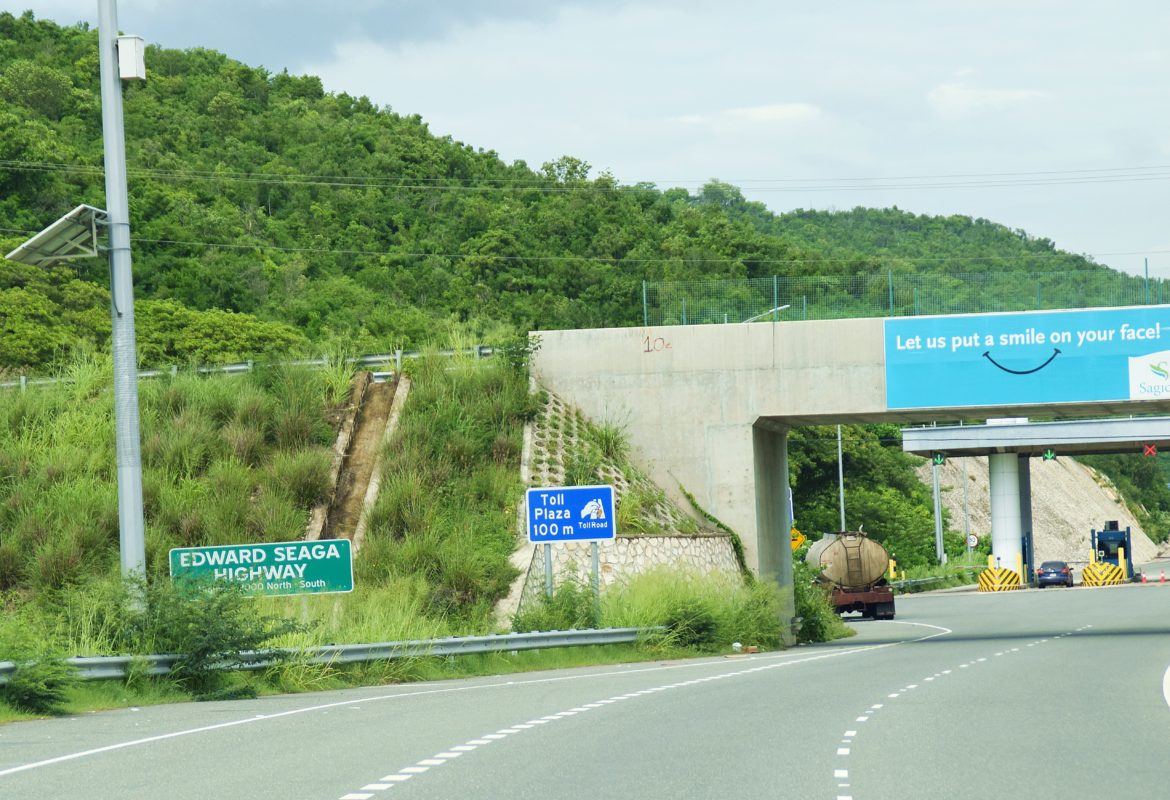The Caribbean engages the belt and road initiative
By CIJN STAFF WRITERS AND CONTRIBUTORS

China’s ambitious Belt and Road Initiative was first raised by President Xi Jinping in the last quarter of 2013.
Six years later, China had signed 173 cooperation agreements with 125 countries and 29 international organizations.
So far, eight of CARICOM’s 15 member states have signed on to the Initiative – Antigua and Barbuda, Barbados, Dominica, Grenada, Guyana, Jamaica, Suriname, and Trinidad and Tobago.
Timeline:
May 2018 – Trinidad and Tobago becomes the first Caribbean country to sign on to the Belt and Road Initiative. Premier Li Keqiang and Trinidad Prime Minister Keith Rowley sign a Memorandum of Understanding at the Great Hall of the People in Beijing. T&T is China’s largest trade partner in the English Caribbean area.
July 2018: Suriname signs on with a Memorandum of Understand on “enhanced cooperation in the fields of infrastructure construction, agriculture, forestry, fishing, law enforcement, human resources and public health.” The country has also adopted the Chinese Spring Festival as a national holiday.
July 2018: Guyana signs on. The Cooperation agreement was signed by Guyana’s Foreign Minister Carl Greenidge and China’s Ambassador to Guyana Cui Jianchun in the presence of President David Granger. Greenidge described Guyana’s infrastructure as “grossly inadequate” which he said has served as a constraint to investment and the attraction of economic opportunities. Guyana, in 1972, became the first Caribbean country to establish diplomatic relations with China.
February 2019. Barbados signs on. He Lifeng, chairman of the National Development and Reform Commission (NDRC), and Jerome Walcott, minister of foreign affairs and foreign trade of Barbados, held talks in Beijing, and the two sides exchanged views on jointly building Belt and Road cooperation between China and Barbados.
April, 2019 – Jamaica signs a Memorandum of Understanding. The agreement is signed between Tian Qi, China’s ambassador to Jamaica, and Kamina Johnson-Smith, Jamaica’s minister of foreign affairs and foreign trade. Qi hoped that both parties can focus on development, improve the cooperation level and fulfil the sustainable development goals in the 2030 Agenda, better promoting connections between China and Caribbean countries in policy, infrastructure, trade, finance, and people-to-people exchanges.
June 2018 – Prime Minister of Antigua and Barbuda Gaston Browne signs a Memorandum of Understanding with China, becoming the first country in the Organisation of Eastern Caribbean States (OECS) to do so. Agreement was signed by Ambassador Wang Xianmin and Ambassador Brian Stuart-Young. The MoU mentions projects such as roads, bridges, civil aviation, ports, energy and telecommunications.
September, 2018: Grenada signs on. Grenada’s Minister for Foreign Affairs, Peter David said the initiative is a strategy of the Chinese Government that focuses on connectivity and cooperation with different regions of the world. He said objectives would be met with a $40 billion fund investment in infrastructure. The Belt and Road initiative he said facilitates the movement of goods and capital between developing areas of the world.
SOURCE: https://www.cijn.org/the-caribbean-engages-the-belt-and-road-initiative/





